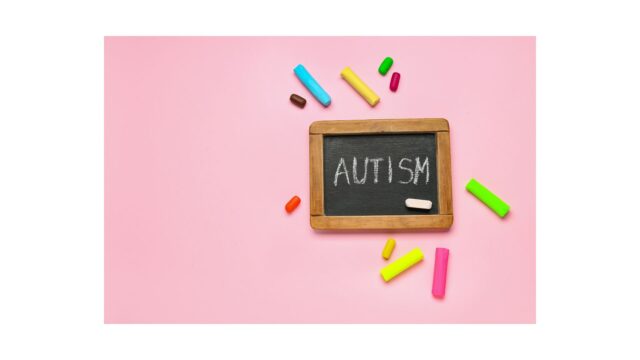Autism Spectrum Disorder (ASD) is a complex neurodevelopmental condition that affects individuals in various ways, presenting a spectrum of symptoms and challenges. Understanding the different levels of autism is crucial not only for parents, caregivers, and educators but for society as a whole. Each person with autism is unique, and their experiences can vary widely, making it essential to delve deeper into the diverse manifestations of this condition.
In this blog post, we will explore the intricacies of autism across its different levels, shedding light on the characteristics, strengths, and difficulties associated with each level. By gaining a deeper understanding of these distinctions, we can foster greater acceptance, support, and inclusivity for individuals across the autism spectrum.
Join us on a journey to unravel the complexities of autism as we delve into its various levels, aiming to promote awareness, empathy, and a more inclusive society for all.
Importance and Benefits of Early Intervention for Children Across the Autism Spectrum
Early intervention is widely recognized as a cornerstone in the support and development of children with autism spectrum disorder (ASD). From enhancing communication skills to fostering social interaction and academic achievement, the benefits of early intervention extend far beyond childhood. In this article, we will delve into the importance and myriad benefits of early intervention for children across the autism spectrum, emphasizing the critical role it plays in shaping their future.

Identification and Diagnosis
Early intervention often begins with the identification and diagnosis of autism spectrum disorder. Through comprehensive screening and assessment processes, children can receive a timely diagnosis, enabling them to access appropriate interventions and support services tailored to their specific needs.
Optimal Brain Development
The early years of life are crucial for brain development, and interventions implemented during this period can have a significant impact on neural plasticity and functioning. Early intervention programs are designed to capitalize on the brain’s natural capacity for growth and learning, maximizing the potential for positive outcomes in children with autism.
Enhanced Communication Skills
Many children with autism experience challenges in communication, ranging from delays in speech development to difficulties with nonverbal communication cues. Early intervention programs incorporate evidence-based strategies to support language acquisition and communication skills, empowering children to express themselves more effectively and interact with others in meaningful ways.
Improved Social Interaction
Social interaction can be particularly challenging for children with autism, but early intervention efforts aim to address these difficulties by fostering social skills and interpersonal connections. Through structured activities, play-based interventions, and social skills training, children learn how to navigate social situations, develop friendships, and cultivate meaningful relationships with peers and caregivers.
Academic Achievement
Early intervention programs lay the foundation for academic success by providing children with the foundational skills necessary for learning and educational attainment. By addressing areas such as attention, executive functioning, and sensory processing, interventions help children overcome barriers to learning and participate more fully in academic environments.
Behavioral Support and Management
Many children with autism exhibit challenging behaviors that can impact their daily functioning and quality of life. Early intervention programs incorporate behavioral support strategies to address these behaviors proactively, teaching children alternative coping mechanisms, self-regulation skills, and problem-solving strategies.
Educational Approaches: Tailoring Learning Methods to Individual Needs
- Understanding Individual Profiles: Educators must take the time to understand each student’s individual profile, including their strengths, challenges, interests, and sensory preferences. This knowledge serves as the foundation for designing personalized learning plans that meet the specific needs of each learner.

- Visual Supports and Structured Routines: Many students with autism benefit from visual support and structured routines to facilitate understanding and reduce anxiety. Visual schedules, picture cards, and visual aids can help students navigate daily activities, transitions, and academic tasks more independently.
- Multi-Sensory Learning Approaches: Incorporating multi-sensory learning approaches can enhance engagement and comprehension for students with autism. By integrating auditory, visual, tactile, and kinesthetic elements into instruction, educators can accommodate diverse learning styles and preferences.
- Differentiated Instruction: Differentiated instruction involves tailoring teaching methods, materials, and assessments to meet the unique needs of individual learners. This approach allows educators to provide varying levels of support, challenge, and scaffolding based on students’ abilities and readiness levels.
- Social Skills Instruction: Many students with autism require explicit instruction in social skills to navigate social interactions and build meaningful relationships. Social skills groups, peer modeling, and role-playing activities can help students develop essential communication, cooperation, and friendship skills.
Conclusion
Positive Solutions Behavior Group LLC, we strive to deepen our understanding of the different levels of autism to provide comprehensive support tailored to each individual’s needs. Through ongoing research and compassionate care, we recognize the unique challenges and strengths present at every level, fostering an inclusive environment where individuals with autism can thrive. By embracing diversity and promoting understanding, we aim to empower our community in Mason, Ohio, and beyond, fostering a future where individuals with autism are valued members, contributing to a more inclusive and compassionate society. For inquiries, please contact us at 859-282-0400.






